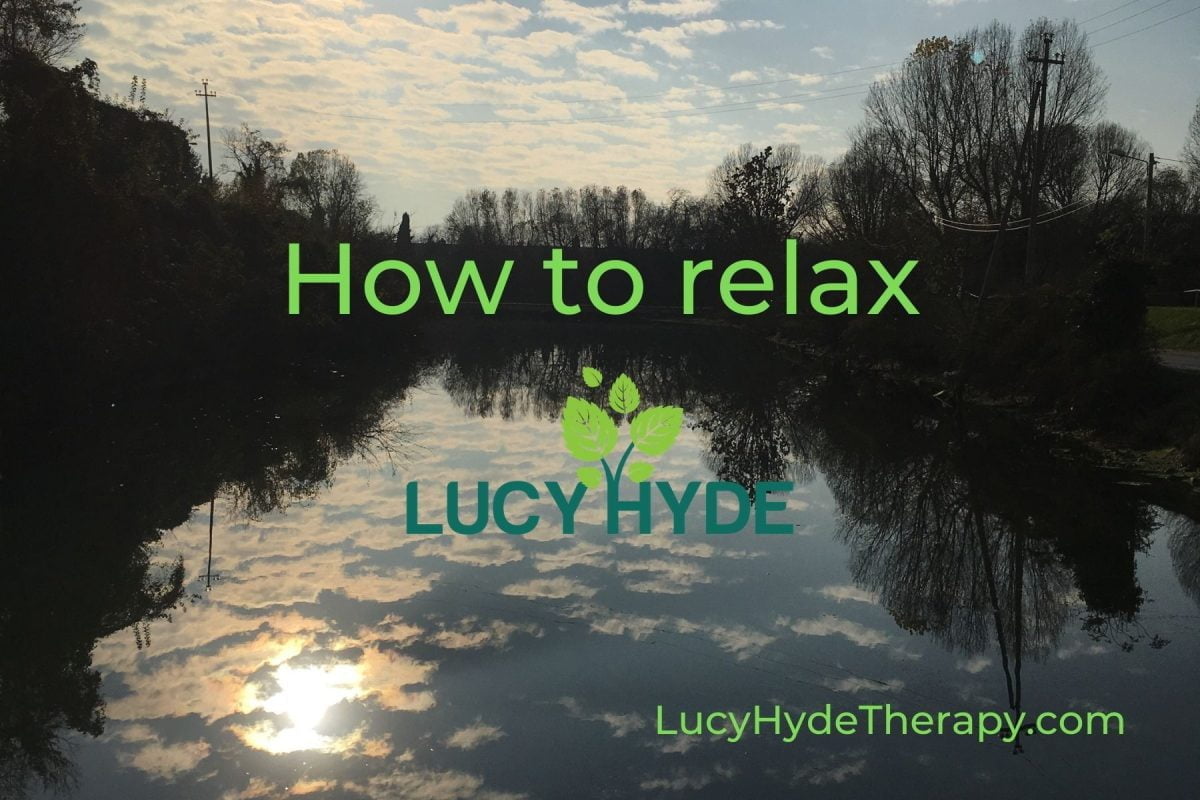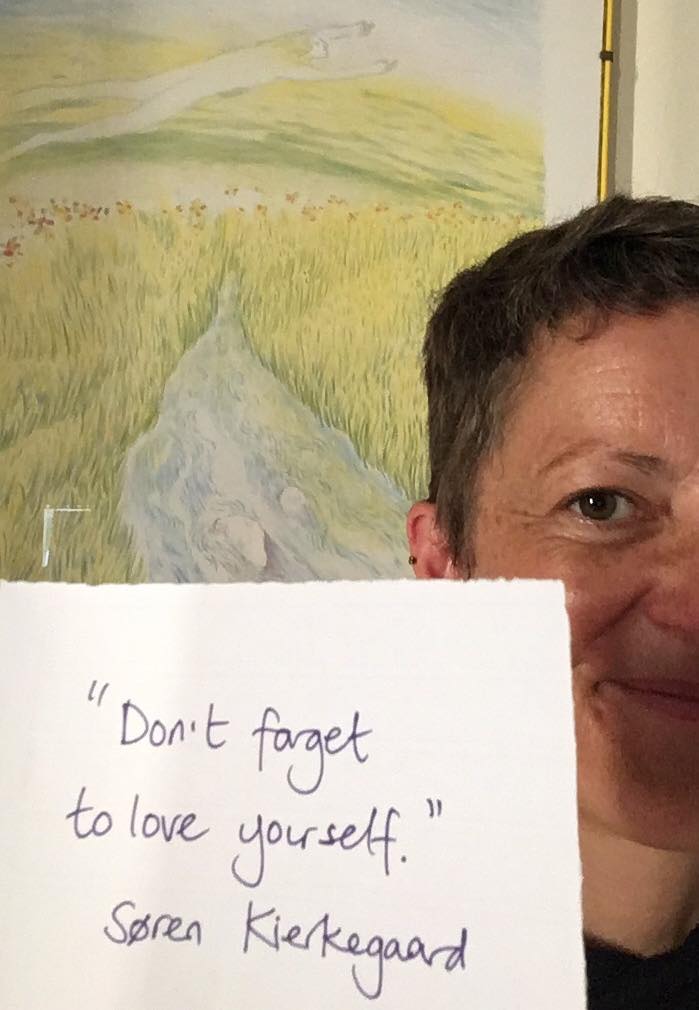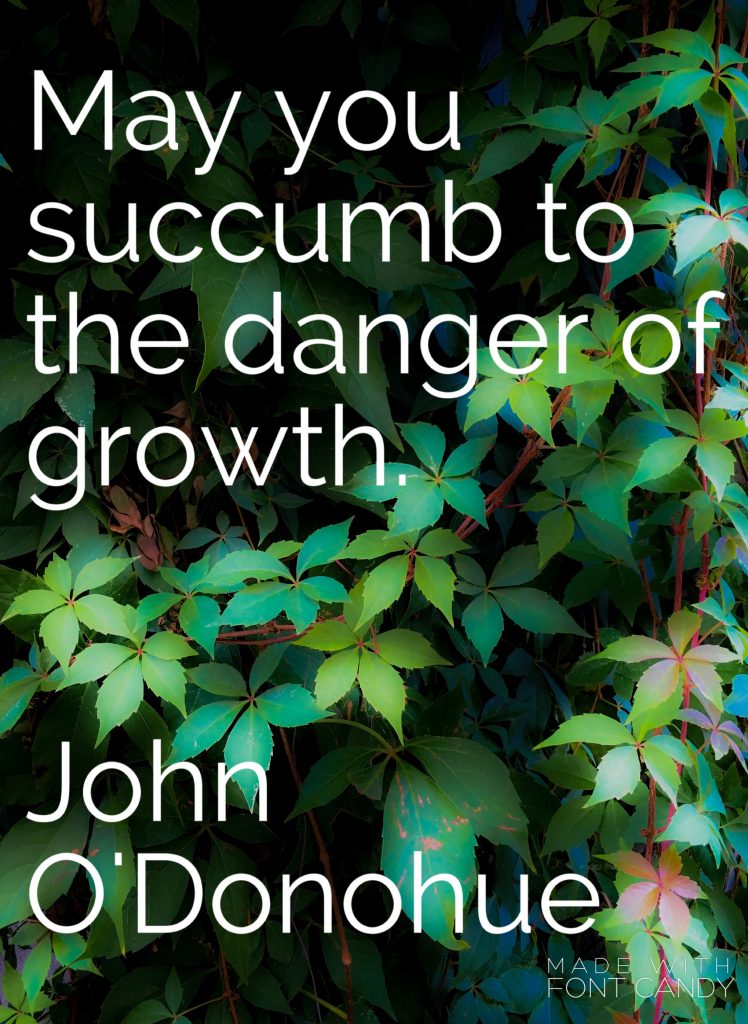Self-care: How to relax
I’m just back from a week’s leave.
I’m being strict with myself this year about taking regular and frequent breaks for self-care. It’s been an interesting and useful experience; because a bit of me thinks it’s ‘self-indulgent’, I’ve been challenging that thought by talking about it. Getting it out there helps counteract a tendency to feel ashamed about looking after myself.
Breaks = regular maintenance
So many people I encounter find it difficult to prioritise time off. This has been the case especially in the last year where the usual ‘reasons’ for taking leave, many of which are connected to other people – visits to family, plans arranged with others, booked holidays – have been unavailable, leading to many people realising belatedly that they haven’t taken a break for a loooong time.
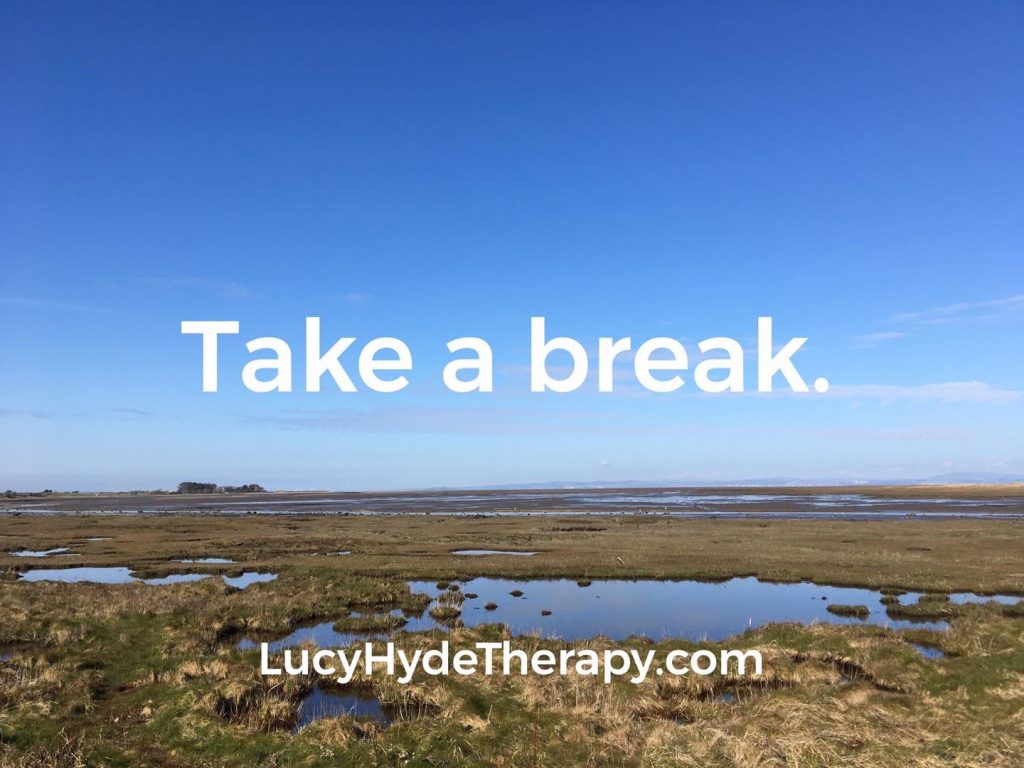
I feel a sense of responsibility to look after myself because of my work with clients; I use myself in my work, I owe it to my clients to offer value for money, and I’m less effective when I’m less healthy or emotionally unwell. This makes it ‘easier’ for me to take time off out of a sense of duty. I’m a people-pleaser who worries about getting it wrong, and changing that is an ongoing, slow process. In the meantime, if ‘duty of self-care’ encourages me to take time off, then I make the most of the result, without worrying too much about the impetus!
Exactly halfway through my leave I felt I had to make a significant decision – ‘how best to use my week off’. Essentially, having had the opportunity the day before to meet up with family for the first time in nearly 6 months, my attention up until then had been focused on that; and indeed, it WAS a highlight – being able to spend a few hours together eating, and walking, outside, filled me up. But after that, I had empty days in front of me and a sense of responsibility to not ‘waste’ them.
Of course, reality-checking after the event, I realise that the idea of a ‘right’ choice was a myth, and it was being faced with the emptiness of unplanned time that felt disorientating.
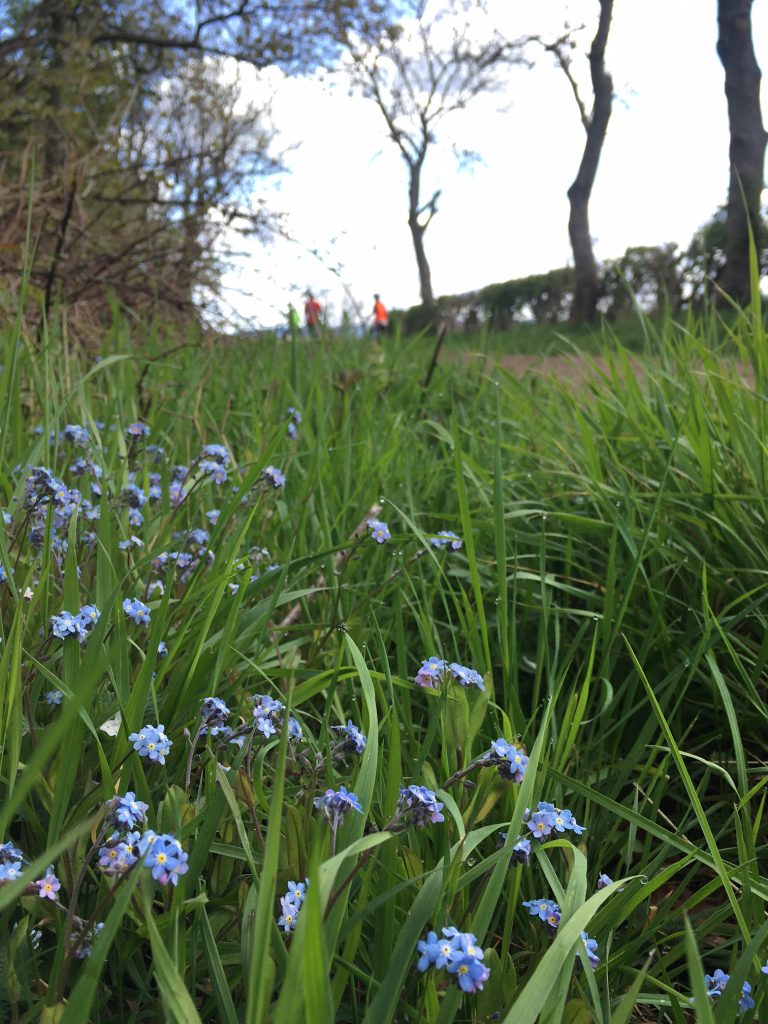
I was talking to someone a few days later who said they experienced a similar sense of pressure at weekends:
“During the week I’m just busy with work and eating and sleeping and recovering, then at the weekend I feel I have to make the most of it and often I end up not enjoying my time off because of thinking how else I could be spending it, and it’s almost a relief when Monday comes and I just slot back in to automatic work pattern.”
I’ve heard people say they need a week off just to get used to being on holiday, to let go of the feeling they should be ‘doing’, after which they can start actually enjoying it. But sometimes we only have a week, or a few days (or a weekend).
And it can spiral into self-criticism too; for example I felt anxious about how to use my time off, then felt guilty for being bothered by such a first-world problem – ‘poor me, I’ve got a break’. It can sometimes take me a while to pull back, to recognise that yes, I am fortunate, and no, feeling guilty about it doesn’t make one jot of difference to people worse off than me, any more than enjoying it would.
How to deal with the fear of getting it wrong
For me, learning to tolerate the thought or feeling, rather than distracting myself from it by getting busy, has helped. I recognise it for what it is, a thought generated by my perfectionist tendencies, rather than an actual real-life risk. Being able to sit with it for a time helps it feel less urgent.

A few other things that I’ve found are useful:
1. Using my Focusing practice to sense bodily what I need.
You can read more about Focusing here. ‘Clearing a space’ was a particularly useful exercise in my week off. Once I had settled inside myself I used the question ‘what’s stopping me feeling really fine right now?’, seeing what appeared, acknowledging it and putting it aside. This is particularly helpful when there’s a few practical problems or life events that take up mental space. You can read about clearing a space here .
2. Giving myself options.
Sometimes checking within myself for what I need can bring an urge to hide away or retreat. While hibernating is OK, I know from previous experience that connecting to the world by getting outside, getting moving, or being with people is often better at getting me ‘unstuck’, even if it feels like an effort initially. Sometimes it helps to give myself options – ‘How do I feel about X? or Y?’ – and seeing what my gut response is. If I have a week off, making just one plan for something I usually enjoy takes some of the pressure off figuring it out.
3. Remembering that there’s no ONE right answer.
The reality is that whatever I feel I need, it has to fit in with life. Yes, it might sound great to be able to always follow my sense of what I need at any moment, but realistically it’ll be dependent on time, resources, other people, etc. So finding something that’s, say 60 – 70% good-enough self-care right now, rather than looking for the perfect answer, is fine. Good enough for now IS actually, sometimes, the perfect answer. I was talking to a friend who said:
“I had a few things I really wanted to do, things I like doing, but I felt like going back to bed. And when I was sitting in bed, I was thinking ‘Oh, I’m not doing x, y and z.’ And I had to remind myself that I WAS doing something else that I needed, by just being. But it took effort to do that.”
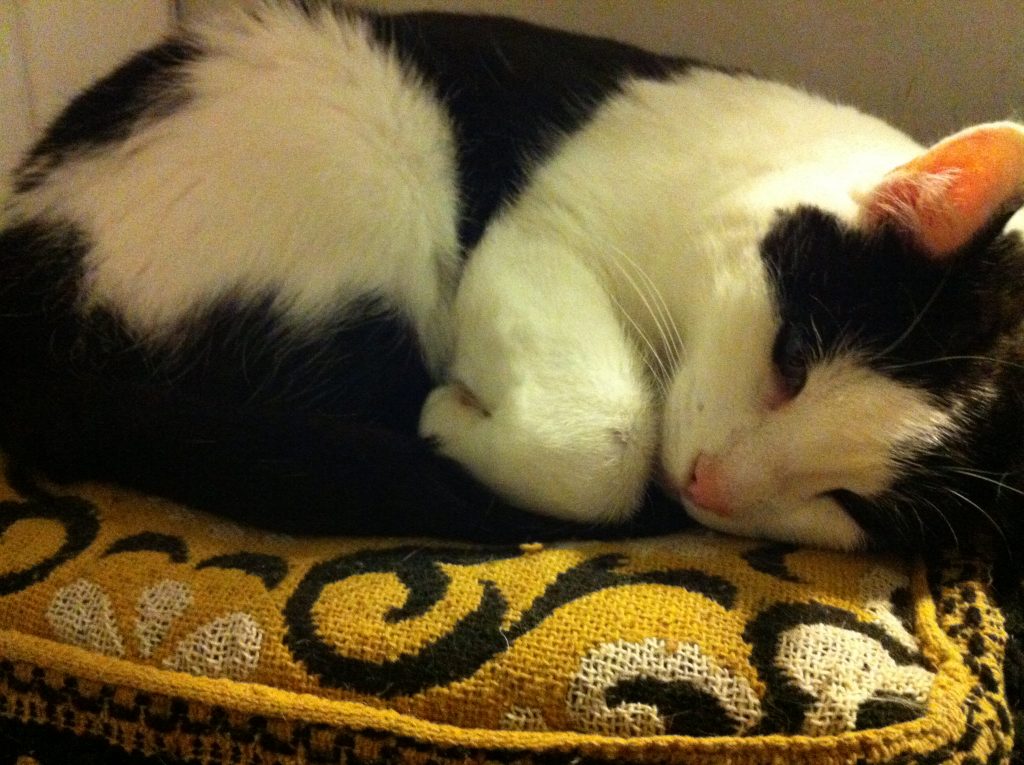
4. Noticing when I’m content.
When I can notice that I’m enjoying the moment, that’s really bloody useful. Because if I can do more of it (right now) then it’s fulfilling a need. That happened to me when I was sitting in the sun reading a book and – having finished my coffee – I thought ‘This is really nice. Oh, actually, I can carry on sitting here!’ It sounds so obvious, but it can be tricky to catch yourself at these moments – particularly if your pattern is that you can only do the thing that you LIKE once you’ve finished the task that you don’t (and it can lead you to NEVER getting round to the thing that you like).
5. Finding a balance.
On my week off, Covid restrictions at last allowed travel round Scotland. There was a temptation to rush around the place seeing people, to recharge my social battery. But one thing I’ve learned in recent years is that although I need people, I also need solitude. Someone told me recently:
“I’ve learned I need to consciously rest more to actively counteract those stress hormones…..I love lying cosied up with a book……and when I feel a bit sluggish or melancholy from that quiet time I know it’s time for a little activity”.
Most of us live such busy lives of doing that it’s no wonder we find it difficult to change gear and slow down. It’s also normal, as you get older, for transition from one thing to another to take longer – and that includes transition from one way of being to another.
It’s OK and normal for relaxing to not come naturally AND there are things that you can do to support yourself to let go a little. Although I’ve shared some of what works for me I’m really interested to hear if there are ideas or tips you have for how you help yourself relax.
The most important thing, I think, is that ANY relaxation is better than none. So if I can let go of ‘getting it right’ and allow it to be Just Good Enough For Now, that really helps. And if that letting go only lasts for half an hour, or a few moments, that’s OK, because that’s relaxation time I wouldn’t have otherwise.

If reading this has been useful, you might also like to check out my blogs on Focusing for anxiety, and tips for dealing with stress. And if you want to share any ideas, or would like to try working with me, please get in touch.

